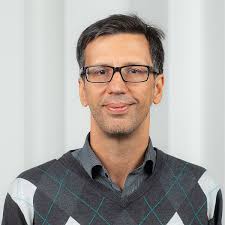Aligning power demand with the availability of clean energy

The rapidly growing electricity demand of computing systems, particularly driven by advancements in AI, is raising critical concerns regarding their sustainability. One approach to reduce the operational carbon emissions of datacenters is carbon-aware computing: aligning power demand with the availability of clean energy. BIFOLD researchers developed an open-source simulation environment for research at the intersection of computing and energy systems. “Put simply, this means that we try to compute more when the energy is clean and less when it is dirty”, says BIFOLD fellow Prof. Odej Kao, chair of the Distributed and Operating Systems group at TU Berlin . However, common metrics for describing “clean” energy often oversimplify the complex nature of power grids and energy markets. To enable truly carbon-aware systems, visibility and control over the underlying energy system is needed. For example, applications should be able to query the current amount of renewable power generation or battery state of charge, and react to it accordingly.
Unfortunately, developing and testing such approaches is challenging. “Real hardware testbeds are very expensive to build and operate and do not scale well. That’s why researchers often end up creating their own energy system simulations, leading to repeated development efforts and poor comparability between different approaches”, explains Philipp Wiesner, researcher at the Distributed and Operating Systems group.
To solve this, BIFOLD researchers developed Vessim over the last 1.5 years, a co-simulation testbed designed for research at the intersection of computing and energy systems. It connects real or virtual compute infrastructure with fully simulated, yet realistically behaving, microgrids. Vessim combines different simulators for renewable power generation and energy storage, is easily extendible, and enables the integration of existing computing systems through software-in-the-loop simulation. Moreover, it comes with different, ready-to-use datasets from prominent data providers like Solcast and WattTime.
Vessim is publicly available on GitHub, was recently presented at the 3rd Workshop on Sustainable Computer Systems (HotCarbon), and has already been utilized in BIFOLD projects, including the evaluation of more sustainable federated learning systems. “We are now focused on integrating more simulators and promoting widespread adoption within the research community”, says Philipp Wiesner.
Related News articles:
Scheduling computing tasks can reduce emission
Sustainable Federated Learning
Publication:
Vessim: A Testbed for Carbon-Aware Applications and Systems, Philipp Wiesner, Ilja Behnke, Paul Kilian, Marvin Steinke, and Odej Kao
3rd Workshop on Sustainable Computer Systems (HotCarbon). 2024.
More Information:
Website
Publication
Video
Github



